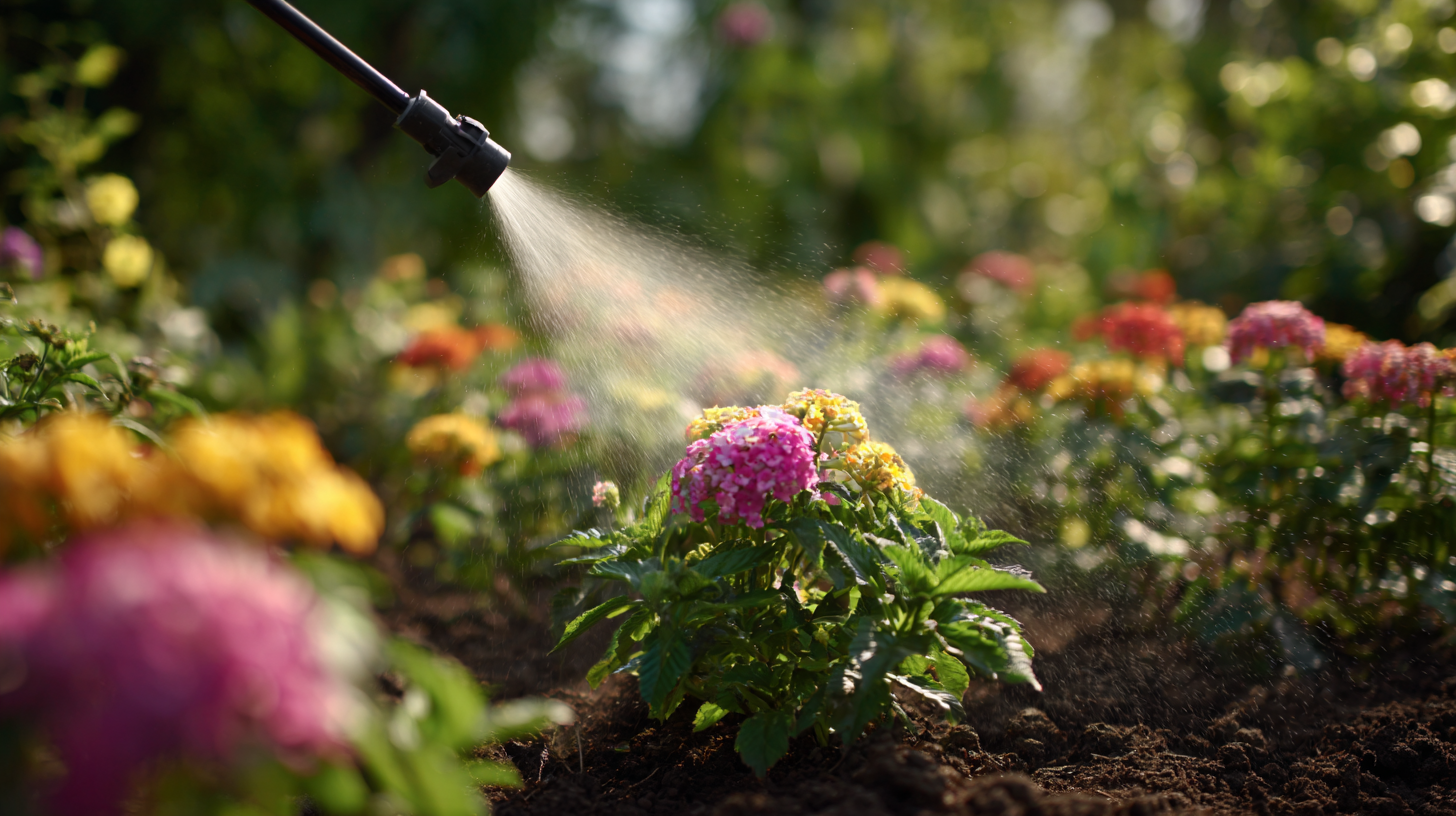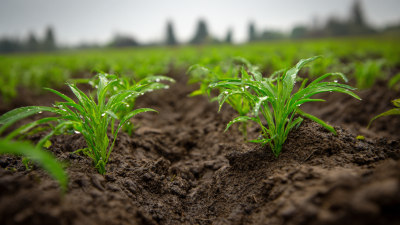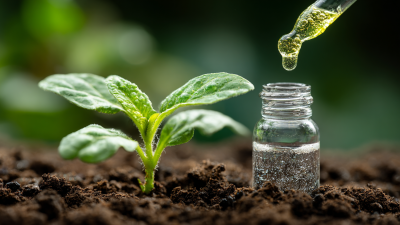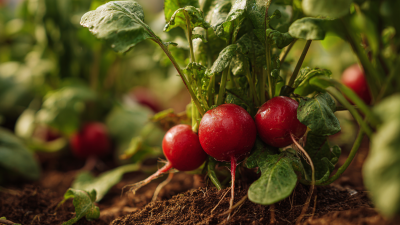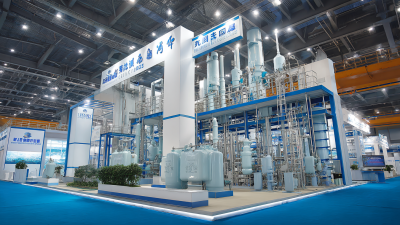The increasing demand for efficient and sustainable gardening practices has led to a renewed interest in specialized fertilizers, notably Water Soluble Nitrogen Rich Fertilizer. As highlighted by industry reports, nitrogen is a crucial nutrient for plant growth, accounting for approximately 50% of the essential nutrients required for optimal horticultural production. According to a recent analysis by the International Fertilizer Association, the market for water-soluble fertilizers is projected to grow at a CAGR of 6.2% from 2021 to 2026, reflecting a shift towards precision agriculture and targeted nutrient application. These fertilizers not only enhance nutrient absorption but also contribute to healthier plant growth, resulting in increased yield and improved quality of garden produce. As such, understanding the benefits and applications of Water Soluble Nitrogen Rich Fertilizer is essential for gardeners aiming to achieve vibrant and thriving gardens.

Water soluble nitrogen rich fertilizers offer numerous advantages that can significantly enhance garden growth. One of the most notable benefits is the rapid absorption of nutrients. According to a study published by the American Society of Horticultural Science, plants can absorb water-soluble nitrogen in as little as 24 hours, leading to quicker growth responses compared to traditional fertilizers. This is particularly advantageous for fast-growing crops and during critical growth periods, supporting not only robust growth but also higher yields.
Another compelling advantage is improved nutrient efficiency. Research from the Journal of Plant Nutrition indicates that water soluble fertilizers can reduce nitrogen losses by up to 60% compared to granular forms. This means that gardeners can deliver more nitrogen directly to their plants while minimizing waste and environmental impact. Additionally, these fertilizers allow for tailored nutrient applications, which can be adjusted based on specific plant needs, soil conditions, and growth stages, further optimizing their effectiveness and supporting sustainable gardening practices.
Nitrogen-rich fertilizers have become indispensable in promoting healthy garden growth. One of the key benefits is their ability to improve soil nutrient availability. According to a report by the International Fertilizer Association, nitrogen significantly enhances plant photosynthesis, leading to increased biomass and better yields. When applied, these fertilizers not only provide essential nutrients but also stimulate microbial activity in the soil, which is crucial for nutrient cycling.
Another critical feature of nitrogen-rich fertilizers is their solubility. Soluble forms of nitrogen, such as ammonium and nitrate, allow for rapid uptake by plants, ensuring immediate availability of nutrients. Research from the American Society of Agronomy indicates that soluble nitrogen sources can increase crop yield by up to 25% when used effectively. Additionally, nitrogen-rich fertilizers often come with slow-release formulations that minimize leaching, thereby promoting a healthier soil ecosystem. By enhancing both nutrient availability and soil structure, these fertilizers play a pivotal role in fostering thriving gardens.
| Feature | Description | Benefits |
|---|---|---|
| High Nitrogen Content | Contains a high percentage of nitrogen, essential for plant growth. | Promotes lush foliage and vigorous growth. |
| Rapid Absorption | Dissolves quickly in water for fast plant uptake. | Ensures nutrients are available to plants when needed. |
| Improves Soil Structure | Enhances the physical properties of the soil. | Boosts aeration and water retention. |
| Balanced Nutrient Supply | Provides a comprehensive nutrient profile. | Supports overall plant health and development. |
| Versatile Application | Can be used in various settings, including gardens and lawns. | Adaptable for different plant types and growth stages. |
| Environmentally Safe | Formulated to minimize adverse environmental impacts. | Cares for the soil and water ecosystems. |
| Cost-Effective Solution | Provides good value for the amount of nutrient provided. | Reduces overall fertilization costs in the long term. |
Water-soluble fertilizers, particularly those rich in nitrogen, can remarkably enhance garden productivity. To maximize their benefits, it's essential to understand how to apply them effectively. According to a report by the Fertilizer Institute, using water-soluble fertilizers can improve nutrient uptake, resulting in a 30% increase in crop yields compared to traditional granular forms. This is particularly advantageous for leafy greens and flowering plants, which thrive on readily available nutrients.
One essential tip for gardeners is to use these fertilizers during peak growth periods. Research indicates that plants absorb nutrients more efficiently when they are actively growing. Timing applications to coincide with these phases can lead to a robust increase in biomass. Moreover, diluting the fertilizer to recommended concentrations, usually around 1-2 teaspoons per gallon of water, ensures that the plants receive a balanced nutrient intake without the risk of burning the roots. Regular application every two to four weeks can provide a consistent nutrient supply, promoting healthy growth and vibrant blooms throughout the growing season.
Lastly, conducting a soil test before application can significantly enhance the effectiveness of water-soluble fertilizers. Understanding the specific nutrient requirements based on the soil's composition can help tailor application rates, leading to optimal plant health. The American Society of Agronomy suggests that well-informed fertilization strategies, combined with water-soluble options, can improve not only crop yields but also soil health, contributing to sustainable gardening practices.
When utilizing nitrogen fertilizers, avoiding common pitfalls is crucial for promoting optimal plant growth. One frequent mistake gardeners make is over-fertilizing. Applying too much nitrogen can lead to excessive foliage growth at the expense of flowering and fruiting. It’s essential to follow recommended application rates and to observe how your plants respond, tweaking as necessary.
Another common error is not considering the timing of fertilizer application. Adding nitrogen during late summer can stimulate unwanted growth just before winter, leaving plants vulnerable to cold temperatures. Instead, focus on applying nitrogen fertilizers in early spring when plants are starting their growth cycle, ensuring they can effectively utilize the nutrients.
Tips for success include testing your soil before adding fertilizers to understand its nutrient composition and pH levels. This way, you can determine exactly what your plants need. Additionally, consider using slow-release or water-soluble options that allow for more consistent nutrient availability, enhancing your garden's health over time. Adjusting your watering practices to complement fertilization can also optimize nutrient uptake, promoting stronger and more resilient plants.
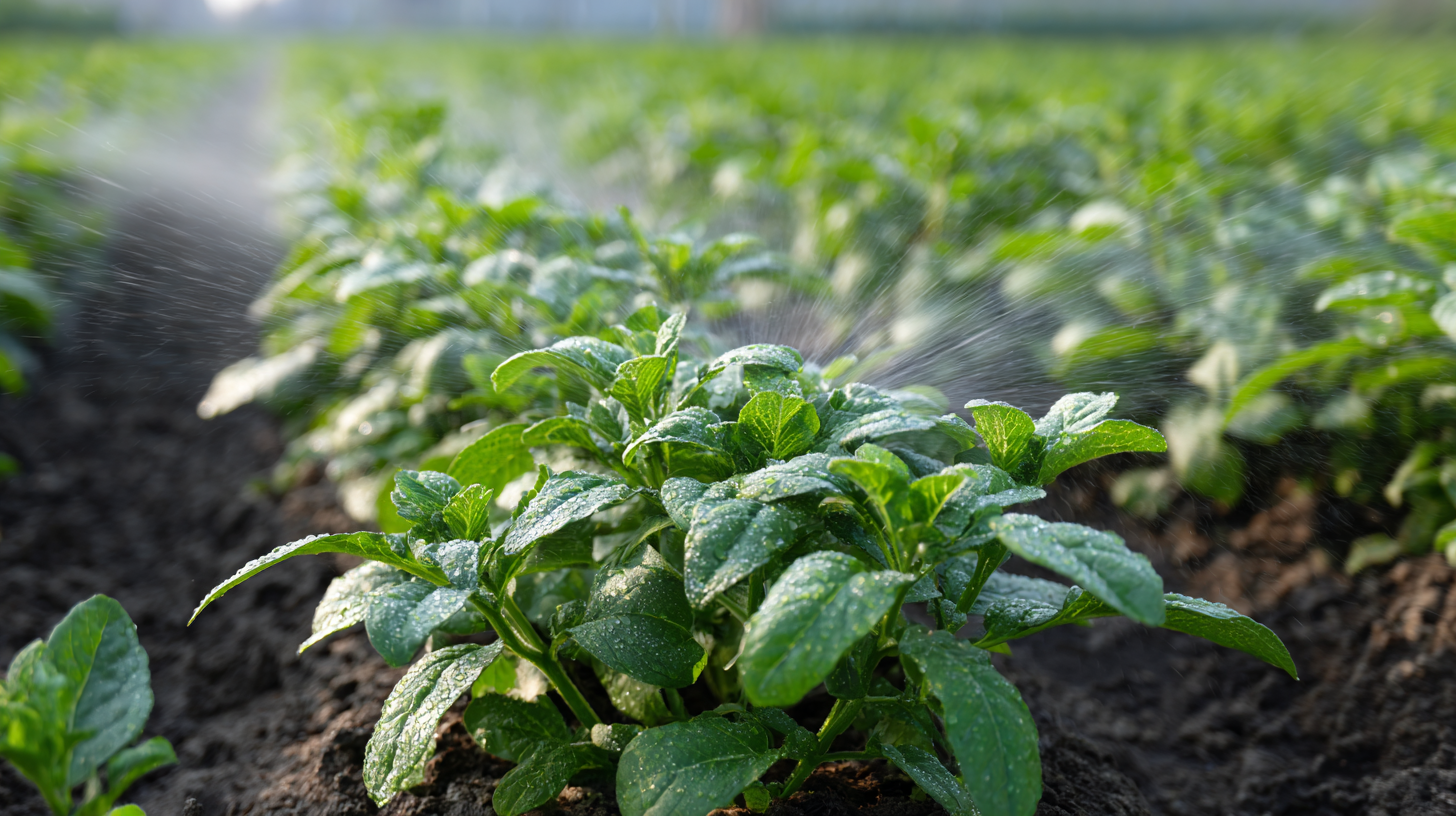
Combining water-soluble nitrogen-rich fertilizers with organic practices can significantly enhance the productivity of your garden while promoting healthier soil. Research indicates that nitrogen-rich fertilizers not only boost plant growth but also improve the overall nutrient profile of the soil. According to the USDA, incorporating soluble nitrogen sources can increase vegetable yields by up to 30% when used in conjunction with organic amendments.
To effectively integrate these fertilizers within an organic framework, consider using them strategically during key growth phases. For example, applying water-soluble nitrates during flowering or fruiting stages can lead to remarkable improvements in harvest quality. Additionally, utilizing soil tests to tailor fertilizer applications can minimize runoff and optimize nutrient uptake.
**Tips:** Start with a diluted solution to prevent nutrient burn and gradually increase concentration based on plant response. Moreover, alternating between organic sources, such as compost or manure, and soluble fertilizers can maximize soil health while delivering essential nutrients. Lastly, incorporating cover crops in the off-season helps fix nitrogen naturally, reducing the need for external fertilizers altogether.
